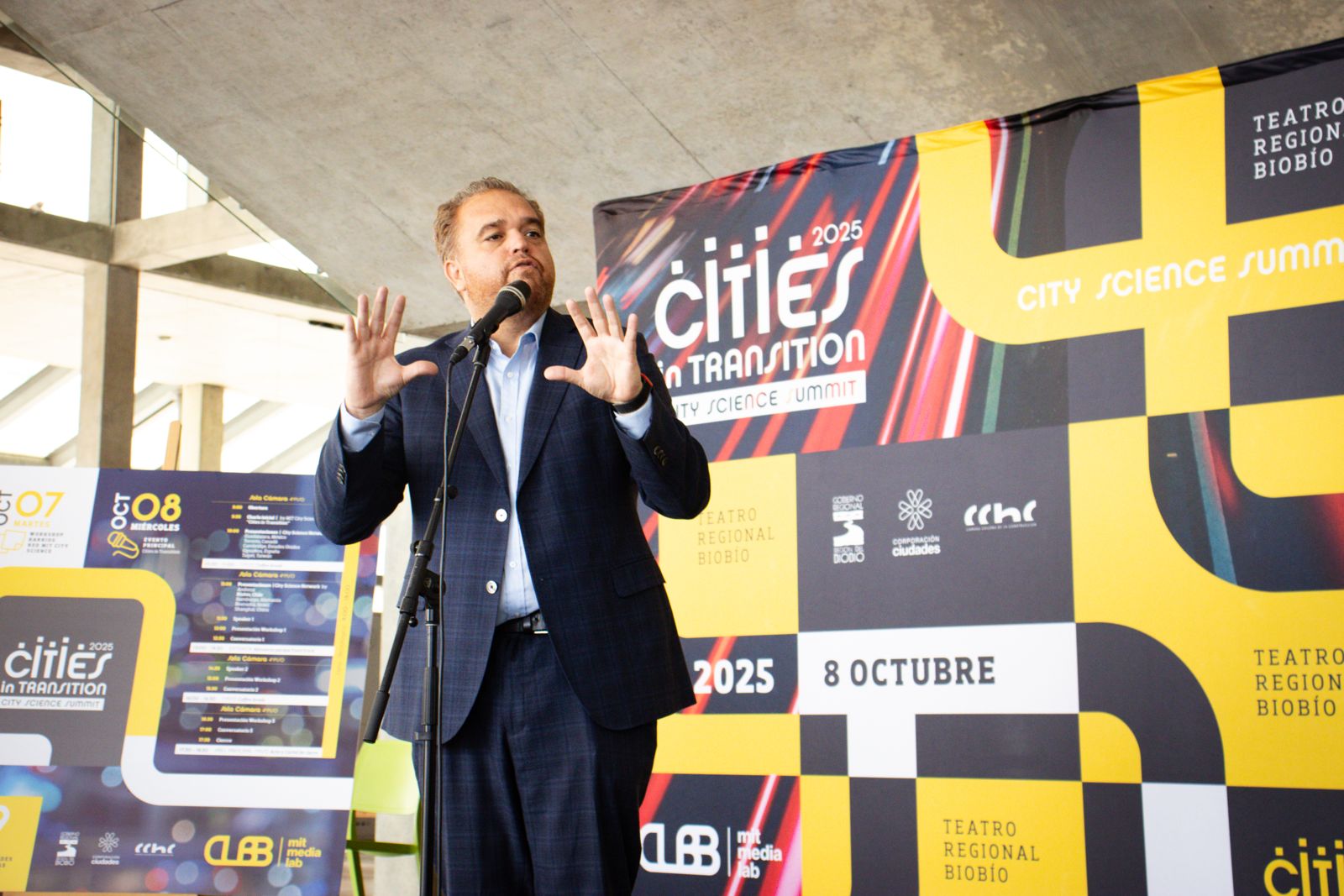Cities in Transition: first MIT network Urban Labs Summit launches in the Southern Hemisphere
"Cities in Transition" will be the name of this meeting that once a year brings together about 150 researchers from different countries around the world where there are city science laboratories dependent on the Massachusetts Institute of Technology, MIT.
Analysis of urban challenges in Greater Concepcion, transfer of knowledge and experiences from different cities around the world, visits by international researchers to various neighborhoods in the capital of Penquista, and the transformation of the Biobío Theater into a meeting point for science, innovation and technology applicable to the city, will be part of the Summit Cities in Transition, a meeting organized by the City Lab Biobío.
The governor of the Biobío Region, Sergio Giacaman, provided details of the Summit, alongside the main director of the City Lab Biobío, Fernando Pérez, the president of the Chilean Chamber of Construction Concepcion Jorge Coloma, and representatives of the Biobío Theater. They were joined by researcher Luis Alonso from the MIT City Science Laboratory, who traveled to Chile for the preparations of this meeting.
More than 150 researchers and professionals
At the instance, it was reported that Cities in Transition will take place from Tuesday, October 7 to Thursday, October 9, and it is projected that about 150 researchers and professionals engaged in urban matters, data technology, and scientific outreach will participate, coming from Hamburg (Germany), Guipúzcoa (Spain), Andorra, Beersheba (Israel), Guadalajara (Mexico), Boston (United States), Toronto (Canada), Taipei (Taiwan), and Shanghai (China). In this way, for the first time, this flagship meeting of urban laboratories from the MIT network will take place in a city located in the southern hemisphere.
"That Biobío becomes the venue for a scientific meeting of this level is a great opportunity for the region. This event will allow us to learn from nine world reference cities, while at the same time, involving them in the search for solutions for our region. We want Biobío to progress with a future vision, and that implies looking at the best international experiences and incorporating that knowledge into our planning. It is not just about doing things right, but about doing them better," commented the governor of the Biobío Region, Sergio Giacaman.
In fact, the Chilean version of the annual MIT network meeting will feature presentations from researchers related to local challenges of Greater Concepción, for which they will develop collaborative work with City Lab Biobío in the coming months.
"What we are going to do with this Summit is to start facing challenges that matter in the region. MIT is going to connect the entire network with the challenges at the regional level, we want to learn with everyone and promote collaboration between people who usually don't work together, because that's innovation. In addition, it will be an open encounter for citizens, which forces us to think carefully about the content, so that it's not just scientists talking about science, but also to make it accessible to the community at different levels," said the lead researcher of the MIT Media Lab, Luis Alonso.
Technologies for Mobility, AI and Data Science
From the City Lab Biobío, it is expected that the presence in Chile of leading researchers in technologies for mobility, artificial intelligence, data science, interactive simulation platforms, and future urban planning, will represent a significant milestone for the dissemination and debate of these subjects in the country.
In this spirit, Cities in Transition will transform the Biobío Theater into the nerve center of the city science of the MIT network. Within this framework, on Wednesday, October 8, the venue will open its doors for a technology fair with companies in the sector, along with other urban activations outside the theater.
"One of our goals is to involve the community in city-related issues, because obviously everything related to urban planning impacts the quality of life of those who live in that city. We will do our best to explain what data science involves, and how it enables us to anticipate scenarios to strengthen the decision-making process of those who influence the different territories," reflected Fernando Pérez, the lead director of City Lab Biobío.

This annual meeting of the MIT network is considered one of the global milestones in city sciences, technology and urbanism. For Gran Concepción, it will mean being the stage where, for one week, researchers and scientists will explore different solutions to the main challenges facing major cities on the planet.
"The idea is to bring together experts from around the world in technology, in artificial intelligence, in planning, and to have a meeting where we discuss infrastructure, commerce, real estate, social housing, and integrating communities into a planning process where we can truly address the concerns of those of us who live here in order to develop a balanced city in the future," concluded Jorge Coloma, president of the CChC Concepción.
The City Lab Biobío exists in Greater Concepción thanks to the support and funding of the Biobío Regional Government and the Chilean Construction Chamber, and its operation is carried out by the Ciudades Corporation. It has the strategic support of the Universities of Concepción, Bío -Bío and Desarrollo, along with partnerships with companies and public entities. Its main objective is the modeling of scenarios to anticipate the impact of urban decisions, as a way to aid with data science in city planning. To this end, it utilizes technology and knowledge transfer from MIT.



